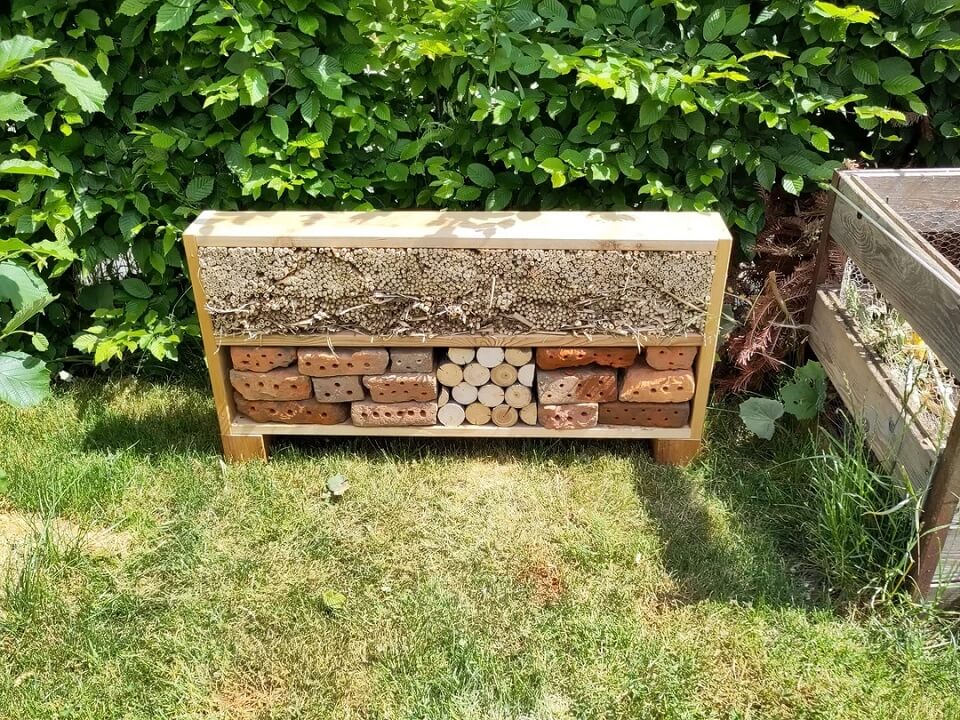Not every gardening tip you pick up on the internet is necessarily a good one, as one Redditor may have just learned.
The Redditor in question built a "bug hotel" to help out pollinators in their garden and was eager to share photographs of their work with the other members of the r/gardening subreddit.


Attracting pollinators is a worthy goal, and one shared by any native plant gardener worth their salt. The problem? Bug hotels, also sometimes referred to as "bee hotels" and "bee condos," can spread diseases among pollinators and attract predators that eat the pollinators such as wasps, birds, and mice.
"Please bee careful. If not done properly, these things do more harm than good," one commenter wrote.
"These can lead to spread of disease for bees just a warning do some research!" wrote another.
One of the commenters helpfully shared a guide to building a bee hotel that will do more good than harm. But even that guide admitted that "the bees really don't care" how nice, elaborate, or homelike the structure is.
Many gardeners suggest avoiding these types of projects entirely. Instead, they say, you should focus on creating conditions that mimic what bees and other pollinators seek out in nature, instead of artificial structures. This can be accomplished by simply growing native plants and leaving yard debris scattered around.
Plenty of Redditors chimed in with stories of their mishaps with bee hotels.
"I had to destroy my bee house the third year because it ended up full of mites and dead bee carcasses," another commenter warned.
"I made one a couple years ago and those spoiled bugs dont wanna live in it," wrote another.
Bee hotels do still have their proponents, however, who claim that the structures can be built carefully to dissuade the predators and encourage mason bees and the types of pollinators you're looking for. So, if this is the type of project you're interested in trying out, just make sure you do your research and keep a close eye on things.
Join our free newsletter for easy tips to save more, waste less, and help yourself while helping the planet.









